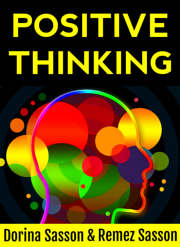
Whether you’re a first-time runner or you’ve been pounding the pavement for years, running can provide fantastic health benefits. From heart health to weight loss, here are some incredible benefits of running.
Benefits of Daily Running
Improves Mental Health
Running is a great way to improve mental health. It releases endorphins, which have mood-boosting properties that can help reduce stress levels and improve mental health.
Running can also be an effective way to cope with anxiety and depression and can help you build up your stamina, which can come in handy when dealing with a particularly stressful situation.
Browse our online courses on meditation, positive thinking, overcoming procrastination, confidence, and freedom from distractions.
Running can also improve sleep by reducing stress levels and regulating hormones. It helps to strengthen the circadian rhythm, making it easier to fall asleep and stay asleep throughout the night. Better sleep has a positive impact on mental health.
Aids in Weight Loss
For many people, running is an optimal weight loss strategy. A 120-pound person burns approximately 11.4 calories in a minute by running at a moderate pace of six miles per hour. That’s more than twice the number of calories burned during a 30-minute walk at a moderate pace of three miles per hour.
In addition to burning calories, running also helps build lean muscle mass, which can help to boost your metabolism and make it easier to maintain weight loss in the long term.
Running can also help reduce appetite, making it easier to stick to a calorie-restricted diet.
Improves Immunity
When you run, your body produces more antibodies and white blood cells that help fight off infection. Running also increases the circulation of these cells throughout your body, which allows them to reach sites of infection more quickly.
In addition, running causes your body to release more hormones that help regulate your immune system. These hormones help increase your immune response’s efficiency, making it more likely that you will quickly recover from an illness.
Running also helps to reduce stress levels, which can also impact immunity. Chronic stress can weaken the immune system, making it more difficult for your body to fight off infection.
However, moderate stress from exercise can help to improve immunity by stimulating the production of immunoglobulins.
Increases Longevity
Studies have shown that running can increase longevity. One way that running helps increase longevity is that running helps to reduce levels of inflammation in the body.
Inflammation has been linked to several age-related diseases, so by reducing inflammation, running may help to protect against these conditions.
Additionally, running helps to improve cardiovascular fitness, which is essential for maintaining a healthy heart and circulatory system.
Runners tend to have healthier blood pressure, cholesterol, and body fat levels than those who don’t run. They also tend to have stronger bones and muscles and better mental health.
Finally, running helps improve mental health, reducing stress levels and protecting against cognitive decline.
Regular running can also help prevent age-related degeneration. Runners have a lower risk of developing dementia, Alzheimer’s disease, and other cognitive impairment. They also tend to have better balance and coordination and are less likely to suffer from falls.
Improves Heart Health
When you run, your heart rate increases, and your blood vessels dilate, which allows more blood to flow to your muscles. This increased blood flow helps to deliver more oxygen and nutrients to your muscles, providing them with the energy they need to keep running.
Running also helps to increase the heart’s efficiency, leading to better blood circulation and lower blood pressure.
In addition, running helps to keep your arteries clear by reducing plaque build-up. As a result, regular running can help to prevent heart disease, stroke, and high blood pressure.
Running is an excellent way to improve cardiovascular health, increase energy levels, and boost overall mood. If you’re looking for a way to get healthy and stay healthy, start running today.
Disclaimer
The material in this article is for general information only, and does not substitute professional advice or help.


